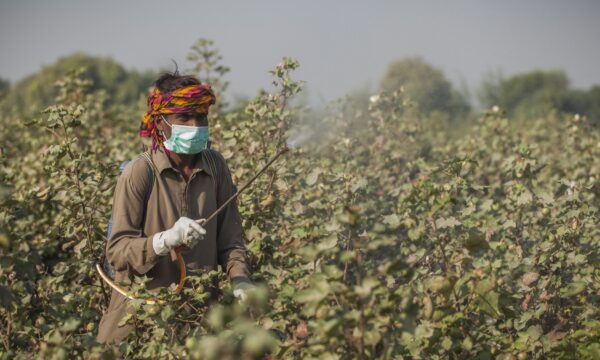
CABI and CropLife Asia, in partnership with the United States Department of Agriculture – Foreign Agricultural Service (USDA-FAS) co-organized a workshop with the Philippines Fertilizer and Pesticide Authority (FPA), to help strengthen sustainable agriculture and trade in the Philippines.
More than half of the Philippines’ 113 million people live in rural areas and 36% of them are poor, dependent on agriculture as their main – and often only – source of income. The agricultural industry involves around 40% of Filipino workers and contributes about 20% to the country’s Gross Domestic Product.
However, agricultural production in the Philippines is affected by a range of crop pests and diseases – such as rhinoceros beetle in coconut and fruit fly in mango – with smallholder farmers trying to mitigate them with chemical pesticides and, where possible, safer-to-use and more environmentally friendly biological control agents.
New and improved “Bio-efficacy & Residue Manuals”
The workshop, held in Quezon City, sought to continue engagement on regulatory harmonization in pesticide management. It brought together relevant government bodies and technical experts to map out the requirements for developing new and improved “Bio-efficacy & Residue Manuals” to be used by Philippine regulators.
This included specialists from the Bureau of Agriculture and Fisheries Standards (BAFS) and the FPA among other key stakeholders.
The new manuals – agreed to be created in a previous engagement with FPA – will ensure that regulators have a critical tool to properly regulate plant protection products to both enhance agricultural trade and promote sustainability.
They will provide day-to-day reference guidelines and instructions for assessing and ensuring the safe and effective use of fertilizers and pesticides, building confidence for regulators and regulatory decisions.
The manual will also assist regulators to successfully comply with international standards and guidelines for regulating pesticides and other plant protection products.
Positive change in the agricultural sector of the Philippines

Mark Hanzel, Agricultural Attaché of USDA-FAS, said that he was happy to witness that this partnership with the FPA is moving at a good pace and that this is an indication that the FPA and allied divisions of agricultural departments are committed to enhancing their regulatory capacity based on science and risk principles.
He added that frequent engagements of this kind will bring about positive change in the agricultural sector of the Philippines.
Meanwhile, Michelle Flavin, International Programs Specialist at USDA-FAS, and Dr Sabyan Faris Honey, CABI’s Deputy Director for Business Development, gave a recap of USDA’s and CABI’s previous engagement in the Philippines in June and March this year.
These previous events were attended by regulators from various divisions of the Department of Agriculture in the Philippines, including FPA, the Bureau of Agricultural Research (BAR), and Bureau of Agriculture and Fisheries Standards (BAFS), along with industry partner CropLife Asia.
The latest meeting marked a continuation of a collaborative project between CABI and USDA to work in partnership towards greater harmonization and collaboration on regulatory systems in the Philippines and Association of Southeast Asian Nations (ASEAN) member countries.
Future engagement with the Philippines is planned for early 2024.
Additional information
Main image: The workshop brought together relevant government bodies and technical experts to map out the requirements for developing new and improved “Bio-efficacy & Residue Manuals” to be used by Philippine regulators (Credit: CABI).
Relevant stories
‘Strengthening agricultural trade and sustainability: A collaborative effort by USDA, CABI, and FPA in the Philippines.’
‘Agreement with USDA towards greater regulatory harmonization and collaboration with ASEAN Members.’
‘CABI shares expertise on crop pest and disease importation risks affecting authorities in Philippines.’
Related News & Blogs
Joint efforts towards strengthening harmonization in the pesticide regulatory landscape of the Philippines
CABI together with the United States Department of Agriculture (USDA) and the Fertilizer and Pesticide Authority (FPA) of the Philippines have produced working manuals to help strengthen harmonization of the pesticide landscape in the Philippines. The…
23 May 2025




